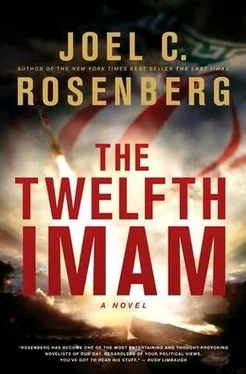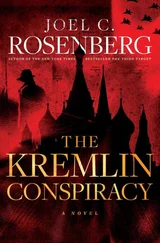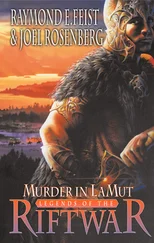But suddenly, without warning, three teenagers-much larger than Najjar-came rushing out of the bushes and tackled him from the side. Blindsided, Najjar crashed to the ground with the wind knocked out of him. Before he could catch his breath, the three began beating him mercilessly. Two balled up their fists and landed blow after blow upon Najjar’s stomach and face. The third kicked him repeatedly in the back and the groin. He shrieked in pain, begging them to stop. He knew who they were, and he knew what they wanted. They were friends of his cousin, who owed one of them a few dinars. His cousin had been late in paying.
Soon blood was pouring from little Najjar’s broken nose and from his left ear. His face began to swell. His vision blurred. All colors began to fade. He was sure he was going to black out. But then he heard a voice shout, “Stop!”
Suddenly the beatings stopped.
Najjar didn’t dare open his eyes. Bracing for the next blow, he remained in a fetal position. After a few moments, he heard the boys walking away. Why? Where were they going? Was it really over? Mustering just enough courage to crack open one eye, Najjar wiped away the blood and tears and saw the three bullies standing around someone, though he could not tell who. Was it a parent? a policeman? Najjar opened the other eye. He wiped more blood away and strained to hear what was being said.
“The Holy Qur’an says, ‘Whomever Allah guides, he is the rightly guided,’” a commanding voice declared. “But what does the Prophet-peace be upon him-say of those who go astray, of those rebels who go far from the teachings of Allah? He says, ‘We will gather them on the day of resurrection, fallen on their faces-blind, dumb, and deaf. Their refuge is hell. And every time it subsides, we will increase their blazing fire.’”
Najjar knew that verse. His aunt had made him memorize Sura 17:97 on his fifth birthday, and it haunted him to this day. He scanned the crowd that had gathered, hoping to see a friendly face or at least a familiar one. But he recognized no one, and he wondered whether the mob was there to see a fight or a punishment.
“You’re saying we are all going to hell?” one of the bullies asked.
Najjar was surprised to hear a trace of real fear in the boy’s faltering voice.
“It is not I who say it,” the stranger said with quiet authority. “The Qur’an says, ‘The weighing of deeds on that day of resurrection will be the truth. Those whose scales are heavy with truth and good deeds, it is they who will be the successful. As for those whose scales are light, because of evil deeds, those are the ones who have lost their souls, causing them to travel toward the fire, because they mistreated; they knowingly denied Our signs.’”
Najjar knew that one, too. It was Sura 7:8-9.
He watched the shoulders of the teenagers sag. Their heads hung low. It wasn’t clear the boys had ever heard those verses before, but they certainly seemed to grasp the stakes. Suddenly they weren’t so tough or so cruel. Indeed, horrified by the wrath that could be awaiting his tormentors, Najjar almost felt sorry for them.
Since his earliest childhood, Najjar had deeply feared the fires of hell. He was convinced that his parents’ deaths in a car crash on a weekend trip to Baghdad when he was only four was punishment from Allah upon him for his own sins. He had no idea what sins he could have committed at so young an age. But he was painfully aware of all he had committed since. He didn’t mean to be such a terrible person. He tried to be a pious and faithful servant of Allah. He prayed five times a day. He went to the mosque every chance he could, even if he had to go alone. He had already memorized much of the Qur’an. He was often praised by his teachers for his religious zeal. But he knew the wickedness in his own heart, and he feared that all his attempts to do what was right could end up being for naught. Was he really any better than these boys who had beaten him? No, he concluded. He was probably worse. Surely they had been sent by Allah to punish him, and he knew he deserved it.
The three boys began backing away from their accuser. A moment later, they turned quickly and ran away. It was then that Najjar saw the one who had come to his defense, and he could not believe his eyes. The stranger was not a man but a boy-one not much older than he. He certainly wasn’t more than eleven or twelve years old, and he was short, with a slight build. He had jet-black hair, light olive skin, a pointed, angular, almost royal nose, and a small black spot like a mole on his left cheek. He didn’t wear street clothes like others his size and age. Rather he wore a black robe and sandals. But what struck Najjar most was the boy’s piercing black eyes, which bored deep into his soul and forced him to look away in humiliation.
“Do not fear, Najjar,” the strange boy said. “You are safe now.”
Najjar’s heart sped. How did the boy know his name? They had certainly never seen each other before.
“You are curious how I know your name,” the boy said. “But I know all about you. You are Persian, not Arab. Your first language was Farsi, though you also speak Arabic and French fluently. You grew up here in Samarra, but you were born in Iran, as were your parents and grandparents. Your family lived in Esfahān, to be precise.”
Najjar was stunned. It was all true. He searched his memory. He must know this boy somehow. But he couldn’t imagine where or when they had met. He had a nearly photographic memory, yet neither this face nor this voice was registering in the slightest.
“You are a child of the Revolution,” the stranger continued. “Your mother, Jamila, bless her memory, was a true servant of Allah. She could trace her family lineage to the Prophet, peace be upon him. Your mother memorized large portions of the Qur’an by the age of seven. She was excited by the fall of the Shah and the return of the Ayatollah from exile in Paris to Tehran on the fateful first day of February 1979.”
This, too, was true, Najjar realized, but it frightened him.
“Though eight months pregnant with you,” the boy went on, “your mother insisted that she and your father join the millions of Iranians trying to catch a glimpse of the Ayatollah as his flight touched down at Mehrabad International Airport that morning. But they never made it, did they?”
Najjar shook his head.
“Just after sunrise, your mother went into premature labor,” the stranger continued. “She delivered you on a bus on the way to the hospital. Only four pounds, fourteen ounces, you were on life support for months. The doctors said you would not survive. But your mother prayed, and what happened?”
“Allah answered her prayers,” Najjar said quietly.
“Yes, he did,” the stranger confirmed. “And then what? Your parents brought you home from the hospital just days before the students seized the American Embassy. Your mother stayed at your side night and day from that point forward. She loved you dearly, didn’t she?”
Najjar’s eyes began to well up with tears, and then the stranger moved closer and spoke nearly in a whisper.
“Your father, rest his soul, was a risk taker.”
Najjar nodded reluctantly.
“Your mother pleaded with your father not to move you and her to Iraq,” the stranger went on. “But he would not listen. He meant well. Raised by merchants, he had a passion for business, but he lacked wisdom, discernment. He had failed at exporting Persian rugs to Europe and Canada. He had failed at exporting pistachios to Brazil and had to borrow money from your uncle. He always seemed to be in the wrong place at the wrong time. And then, convinced the rise of the Ayatollah in Iran would create a boom in business with the Shias in Iraq, he brought you all here to Samarra to build a business and make a fortune. Unfortunately, he did not see the Iran-Iraq War coming. His business never took off, and your parents were killed on the twelfth of December, 1983, in a car accident in Baghdad. And aside from your aunt and uncle, you have been all alone ever since.”
Читать дальше












